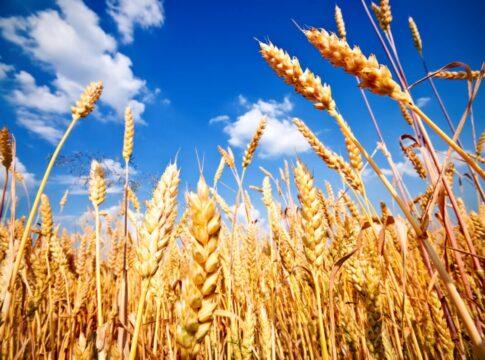As global food security remains a critical issue, Egypt is positioning itself to play a more significant role in the international wheat market. According to a report from the Foreign Agricultural Service (FAS) of the US Department of Agriculture (USDA), Egypt is expected to produce more wheat in the 2024-25 season. This anticipated increase is a result of several strategic measures taken by the government, encouraging local farmers to expand wheat cultivation and improve yields.
The Egyptian government has implemented high procurement prices to incentivize farmers. This move aims to make wheat farming more attractive and profitable. As a result, many farmers are motivated to plant more wheat, leading to an estimated production of 9.2 million tonnes, up from 8.87 million tonnes in the previous year. The FAS highlights that these efforts are likely to result in a 1.1% increase in wheat production for the upcoming season.
In addition to financial incentives, the government has also been focusing on introducing modern agricultural techniques and technologies. These advancements include better irrigation systems, high-yield wheat varieties, and improved pest control mechanisms. By adopting these modern farming practices, Egyptian farmers can achieve higher productivity and sustainability.
Currently, Egypt’s wheat production stands at approximately 9.2 million tonnes while wheat consumption is significantly higher, estimated at around 20 million tonnes annually. This considerable gap between production and consumption underscores the country’s heavy reliance on wheat imports to meet its domestic demand. Despite the anticipated increase in local production, Egypt will still need to import around 12.5 million tonnes of wheat to bridge this gap, maintaining its status as one of the world’s largest wheat importers.
Egypt’s wheat production boost is not only crucial for its domestic market but also has significant implications for the global wheat market. As one of the world’s largest wheat importers, Egypt’s increased local production could lead to a reduction in its wheat imports. Wheat imports are estimated at 12.5 million tonnes, up 11.4% from the previous estimate but the same as 2023-24.
“The influx of foreign currency has contributed to a release of shipments held at ports and facilitated imports of essential commodities (including wheat) for both the public and private sectors,” the FAS noted. “Moreover, the drop in international wheat prices has also contributed to both the private and public sectors seeking to maximize purchases on reduced prices.”
Egypt is a key supplier of wheat flour to many African and Middle Eastern countries and has significantly expanded its wheat flour exports to the region as it continues to increase its milling capacity. From January to May, Egypt increased its wheat flour exports by 250% compared to the same period last year. The largest increases in exports were to Djibouti, Sudan, Somalia, and the West Bank and Gaza. This surge in exports is attributed to the geopolitical crises affecting other suppliers, such as the Israel-Hamas crisis and the Sudan crisis.
Despite these positive developments, the Egyptian wheat sector still faces several challenges. Issues such as climate change, water scarcity, and fluctuating global prices pose significant risks. However, the government’s proactive approach and continued investment in the agricultural sector aim to mitigate these challenges.
Further expansion into modern agricultural techniques and technologies is crucial for sustainable wheat production, especially due to water-scarce areas. By adopting precision agriculture, smart irrigation, drought-resistant varieties, hydroponics, IoT, AI, conservation tillage, and integrated water management systems, farmers can enhance productivity, conserve water, and contribute to global food security. As these innovations continue to evolve, they hold the promise of making agriculture more resilient to the challenges posed by climate change and water scarcity.
Egypt’s expected increase in wheat production for the 2024-25 season is a promising development for the country’s agricultural sector and food security. Through strategic government interventions, technological advancements, and improved farming practices, Egypt is well on its way to bolstering its wheat production capacity. As the global community watches these developments, the outcomes in Egypt could provide valuable insights into sustainable agricultural practices and food security strategies.


